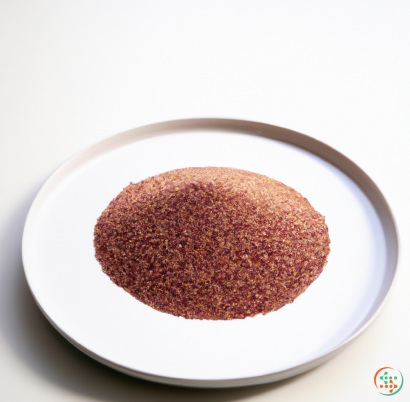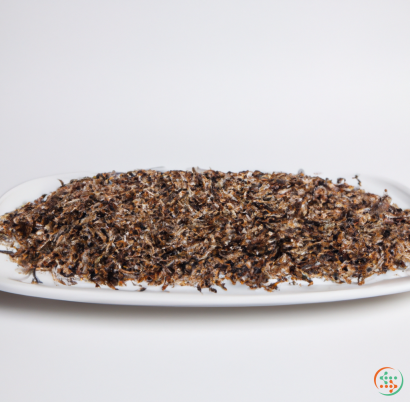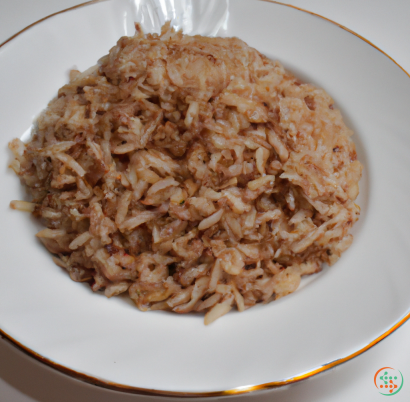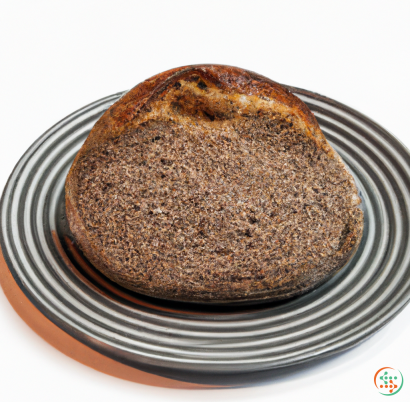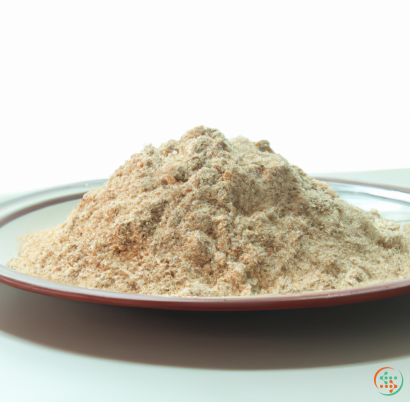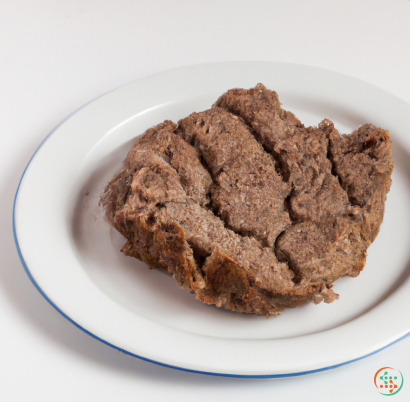Sprouted Grain Bread: Complete Vitamin Profile
Sprouted Grain Bread: Considered a good source of vitamins?
Sprouted grain bread is a nutritious form of whole grain bread that offers a variety of vitamins and minerals. Sprouted grain bread is made from grains, such as wheat or rye, that have been allowed to germinate (sprout) before being ground into flour and baked into a loaf. This process yields an easy-to-digest product with higher levels of some essential vitamins than regular whole grain breads.
Sprouted grain breads are rich in B vitamins including thiamine (B1), riboflavin (B2), niacin (B3), pantothenic acid (B5), pyridoxine (B6) and biotin (B7). These nutrients, which help the body convert food into energy, are all found in sprouted grain bread in greater amounts than those found in other types of wheat bread. They also contain folate, which helps prevent neural tube defects in infants and can reduce the risk of stroke and heart disease in adults.
In addition to providing key vitamins, sprouted grain bread includes significant amounts of magnesium and zinc, both of which have important roles in cell metabolism, as well as calcium, mixed carotenoids, lignans and antioxidants. All these components make sprouted grain bread an excellent source of nutrition for people on vegan or vegetarian diets. In general, sprouted grain bread is a great way to increase your intake of vitamins, minerals and fibre without sacrificing taste.
Sprouted Grain Bread ‐ Vitamin Information
Introduction
Sprouted grain bread is a type of bread made from whole grains that have been sprouted and milled or ground into flour. Sprouting can improve the nutritional content of grains, and as such, sprouted grain bread is becoming increasingly popular among health-conscious consumers. This paper will examine the vitamins found inside of sprouted grain bread by exploring how these vitamins are created during the sprouting process, why they are beneficial for human nutrition, and what health benefits certain vitamins can provide when consumed in sprouted grain bread.
Vitamin B
One important nutrient found in sprouted grain bread is vitamin B. Vitamin B is actually a collection of 8 water-soluble vitamins: thiamin (B1), riboflavin (B2), niacin (B3), pantothenic acid (B5), pyridoxine (B6), biotin (B7), folate (B9) and cobalamin (B12). Each of these vitamins plays an essential role in metabolic processes, cell growth, brain development, and other important bodily functions. During the sprouting process, carbohydrates are broken down into simple sugars, allowing them to be used as a source of energy for the plant; this carbohydrate breakdown provides an ideal environment for many of the vitamin B components to form within the grain. In addition, enzymes produced during germination help to further break down carbohydrates and release nutrients such as vitamin B that may not have been previously available prior to sprouting. Eating foods rich in vitamin B has been shown to provide numerous health benefits, like aiding digestion, improving energy levels, and promoting nerve and brain function.
Thiamin
Thiamin, also known as vitamin B1, is an essential nutrient for metabolism and the creation of healthy cells. It helps to convert the food we eat into energy, which is then used to power our muscles, organs and even our brains. Thiamin is especially prevalent in sprouted grain bread because it is naturally occurring in many grains including wheat germ, oats, barley, and rye. When sprouted, some of the undigested carbohydrates and starches found in the seeds become converted into useful forms of thiamin that can easily uptake into the body. A lack of dietary intake of thiamin can cause serious side effects like confusion and fatigue, so ensuring that you consume adequate amounts of this essential nutrient through foods such as sprouted grain bread is critical.
Riboflavin
Riboflavin, also known as vitamin B2, is another important vitamin found in sprouted grain bread. Riboflavin performs multiple roles in the body, primarily helping with energy production and physiological development. Like thiamin, it’s also naturally occurring in grains and other foods, but the amount varies depending on sources. When sprouted grain bread is prepared using traditional methods, more of the existing riboflavin is released and becomes bioavailable for consumption. Additionally, the benefits of consuming riboflavin-rich foods include improved vision, better bone health, and fortified defenses against oxidative stress.
Niacin
Niacin, or vitamin B3, is one of the most plentiful vitamins found in both un-sprouted and sprouted grain breads. Niacin plays an integral role in human health, helping to produce hormones, create energy, and regulate blood cholesterol levels. As with thiamin and riboflavin before it, sprouting further unlocks niacin in the grain and increases its availability to the body. Adequate intakes of this vitamin have been linked to decreasing risk of stroke, improving skin complexion, and maintaining healthy digestion.
Pantothenic Acid
Pantothenic acid, otherwise classified as vitamin B5, is another important nutrient commonly found in sprouted grain bread. Pantothenic acid is involved in producing hormones, supporting immune system functioning, and creating red blood cells. Compared to other B group vitamins, pantothenic acid is widely accessible in natural foods without any processing, thus making sprouted grain a highly recommended source for those seeking to increase their pantothenic acid intake. Research suggests that associated health benefits from pantothenic acid could range from preventing mental health disorders such as depression, to boosting energy and enhancing athletic performance.
Conclusion
In conclusion, sprouted grain bread contains valuable vitamins and minerals that are not always found in other types of breads. Vitamins B1, B2, B3, and B5 can all be found in appreciable amounts in sprouted grain bread, thanks to the conversion of various stored carbohydrates and starches made possible by the sprouting process. Consuming these vitamins on a regular basis can offer a variety of general health benefits, such as improving energy levels, supporting cardiac and cognitive functions, and protecting against chronic conditions. For these reasons, incorporating sprouted grain bread into one’s diet can significantly enhance their overall wellness.
| Beta-Carotene | 0.003 mg | |
| Vitamin E | 0.34 mg | |
| Vitamin K | 0.0011 mg | |
| Vitamin B1 | 0.23 mg | |
| Vitamin B2 | 0.08 mg | |
| Vitamin B3 | 0.00233 grams | |
| Vitamin B4 | 0.0149 grams | |
| Vitamin B6 | 0.19 mg |

